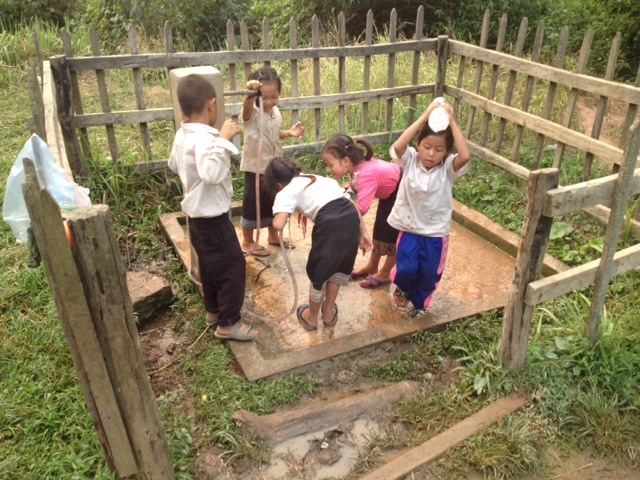World Water Day 22 March 2014
Globally there are over 780 million people without access to clean water, which translates to 1 on 9 persons. In Lao PDR with a growth rate of 8% annually over the past decade, rural areas, where most people still live, are being left behind particularly in terms of access to safe water, sanitation and hygiene (WASH) services[1]. Urban-rural gaps in clean water and sanitation are widespread in this landlocked, mountainous country of 6.7 million people, where nearly 70 percent of the population lives in rural areas.
In 2012, only 64 percent of people in rural communities had improved sources of drinking water and 48 percent had improved sanitation facilities, compared to 88 and 91 percent in urban areas, according to government statistics [2]. That same year, rural areas in neighbouring Thailand had 96 percent of people with improved sources of drinking water and 97 percent with improved sanitation facilities.
It is evidenced that poor sanitation and unsafe water are strongly associated with malnutrition and diarrhoea, both of which are leading causes of death in children under five. In Lao PDR, poor sanitation and hygiene conditions, are linked to more than three million disease episodes and 6,000 premature deaths each year in Laos, according to a 2012 Water and Sanitation Programme report [3].
Save the Children has worked to develop water supply and sanitation systems in northern Lao PDR since the early 1990’s, addressing these issues for hundreds of communities, reaching thousands of people. We have constructed sanitation blocks, with a focus in schools, improved gravity fed water systems for irrigation and increased knowledge through training water user groups. The water user groups (WUG) are trained on their roles and responsibilities, operation and maintenance of the water supply scheme, operation and maintenance of household latrines and hygiene education.
As children are more vulnerable to water-borne illnesses especially if there is no clean water source, or safe sanitation facilities. It is also evidenced that if separate toilet blocks for girls and boys are not provided in schools, girls are less likely to continue their education, once they have reached puberty.
Children are known to be behaviour-change champions. Behaviours learnt and modelled at school carry across to their peers, household and wider community.
Save the Children WASH activities improves the health and lives and children and their communities, to enable them to fulfill their potential.
 Laos
Laos 